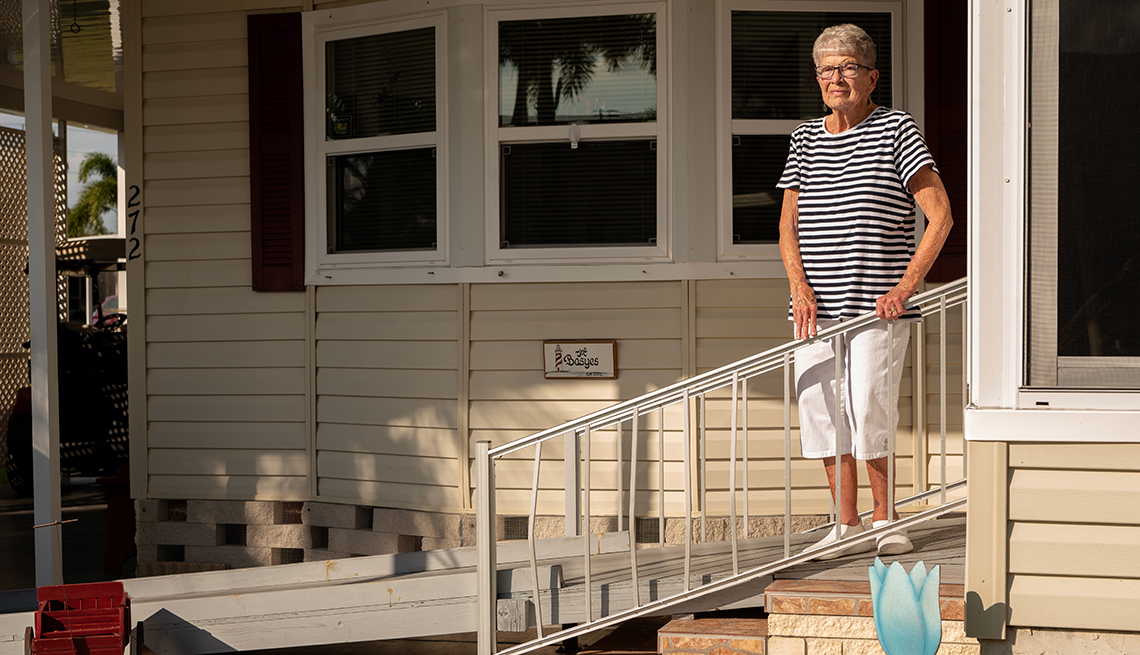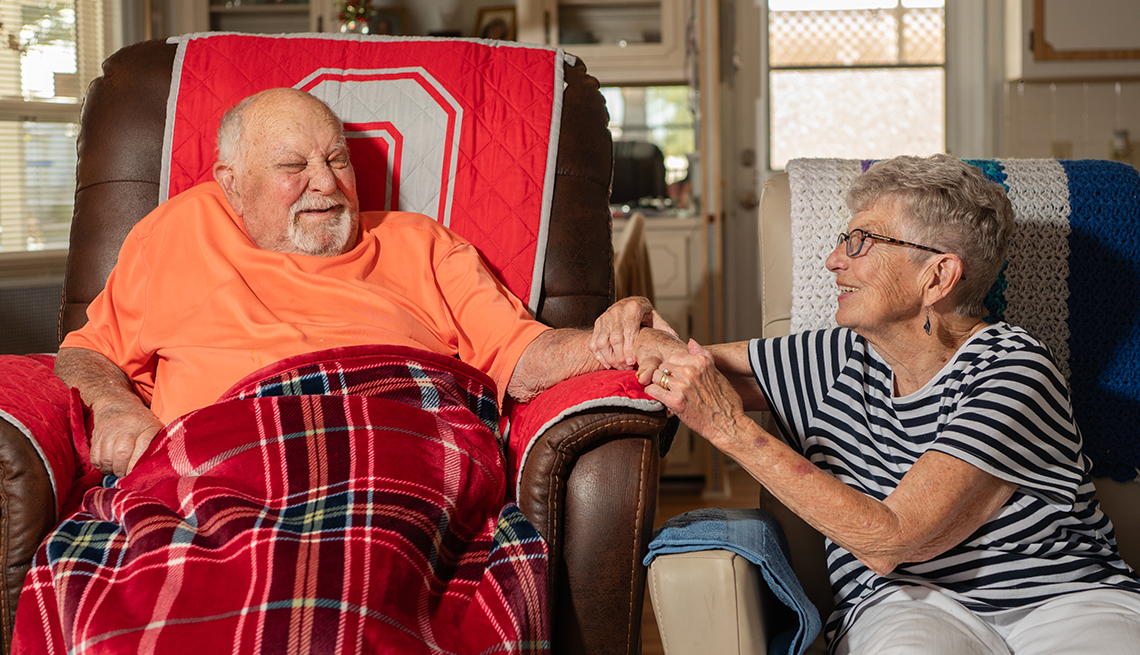AARP Hearing Center

In September 2022, as Hurricane Ian barreled toward southwest Florida, Lois Basye of Port Charlotte had to figure out a safe place to evacuate—not just for herself, but also for her 93-year-old husband, Ben, who is disabled and uses a wheelchair.
The retirees rode out the hurricane—which claimed the lives of at least 150 people in Florida— at a nearby hotel that seemed better built to withstand the wind and rain.
“The hotel held up pretty good,” says Basye, 87, a retired high school secretary and AARP member. Their home didn’t do as well. The wind blew off the roof and the rain wrecked the kitchen.
The Atlantic hurricane season starts June 1 and runs through November. AARP Florida, state officials and disaster relief agencies want Floridians to start preparing now. This includes thinking through where they will go and what they will need in case they have to leave their homes.
AARP Florida will host a virtual disaster readiness workshop on Thursday, June 20, with emergency management specialists. Members can register at events.aarp.org/disasterprep.
Because hurricanes are a fact of life in Florida, many people who have lived through one at home assume that they can ride out the next one there, too. But officials emphasize that every hurricane is different.
Kevin Guthrie, executive director of the Florida Division of Emergency Management, who is an AARP member himself, is encouraging people who may need special assistance during a hurricane to register with the state at snr.flhealthresponse.com. Those needs can include anything from a medical condition to mobility issues.
Guthrie says that less than 1 percent of Florida’s population has signed up to be on the registry. Given the proportion of the state’s residents who are older, Guthrie estimates that 10 to 20 percent of Floridians may need some assistance.

The state also wants all residents to educate themselves on when and how to evacuate if conditions call for that. This includes:
- Knowing when your house was built and what evacuation zone it’s in. Go to floridadisaster.org/planprepare and click on Know Your Zone, Know Your Home to find more. Homes built in 2004 or later most likely have hurricane-resistant roofs, doors and windows.
- Understanding that mobile homes or structures in low-lying areas are most vulnerable to flooding and storm surges, which are responsible for most hurricane deaths. Guthrie says when people are asked to evacuate, that doesn’t mean going hundreds of miles away; it could be as little as tens of miles, to a hotel, shelter or the home of a relative or friend who lives outside the evacuation zone or in a stronger house..
- Ensuring that vehicles are ready to go by keeping them at least halfway charged or filled with gas, depending on the vehicle.
Disaster prep for caregivers
The stress that comes with planning for a hurricane often falls to caregivers like Basye, many of whom are older themselves. In February, the Rosalynn Carter Institute for Caregivers and the Federal Emergency Management Agency released a disaster preparedness guide for caregivers to help them navigate disasters. It encourages caregivers to engage with local emergency management offices to learn what resources are available.
Jennifer Olsen, the Carter institute’s CEO, says even if you’re managing caregiving duties from afar, you can contact your loved one’s local preparedness office to find resources and ask whether they have an alert system for notifying people about a disaster.
She also encourages caregivers to reach out to other current or former caregivers for advice and support.
“The people who understand the challenges of caregiving ... are those who have been in the role themselves,” she says.
Ann Hardie spent a decade covering aging issues for The Atlanta Journal-Constitution. She has written for the Bulletin for 15 years.
For more on disaster preparation































































